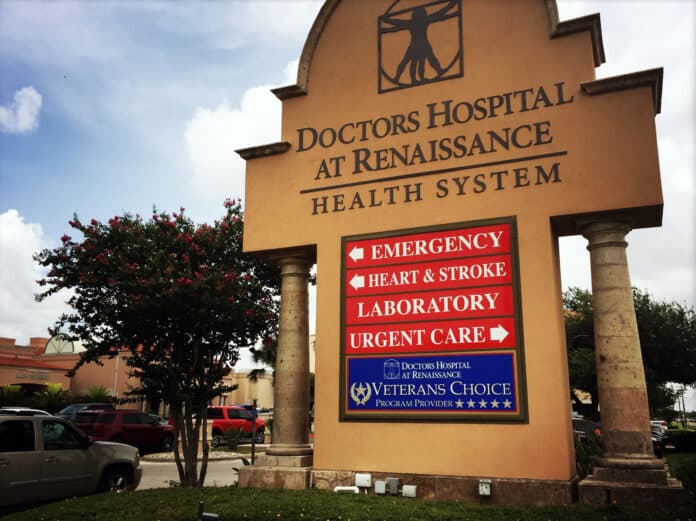
DHR Health is encouraging women to participate in a nationwide breast cancer clinical trials that aim to challenge current preventive practices for breast cancer.
As the only institution in Texas selected to run the study — called Women Informed to Screen Depending on Measure of risk, or WISDOM — DHR Health is attempting to recruit more women within the Rio Grande Valley to help diversify the pool of participants.
The Breast Center of Excellence at DHR Health and the Cancer Research Center at DHR Health Institute for Research and Development are leading the effort under the direction of Dr. Lisa Chapa, a board-certified surgeon and breast cancer oncologist at DHR Health.
“It’s basically a clinical research trial which, first and foremost, is super important for us down here in the Rio Grande Valley because clinical research trials are what brings innovation to medicine,” Chapa said Thursday. “That’s the way that we discover new life-saving drugs, life-altering treatments.”
Currently, there isn’t much consensus on when women should begin receiving mammograms or on how often, according to Chapa.
The American Cancer Society suggests beginning at 45, the American Society of Breast Surgeons says to start at 40, while the US Preventive Services Task Force women should begin at age 50, Chapa said.
“What the WISDOM study is trying to do is it’s trying to bring some type of clarity to the way that women do mammograms and so, so far, mammograms have really been a one-size fits all model,” she said. “But we know that not all women are the same and so some women are at much higher risk of having breast cancer whereas other women are at a low risk of having breast cancer.”
“So the WISDOM study is looking to challenge the status quo of how we do mammograms and see if there’s a better way to do it,” she added.
Chapa particularly wants to encourage Hispanic women to join given that minorities are typically under-represented in clinical studies.
Those who do enroll can choose which “arm” of the study they want to be enrolled in.
They can be in the standard of care arm which means they will get a mammogram once a year or they can be in the personalized screening arm in which they will get an individualized screening schedule based on their cancer risk. They can also choose to be randomized into one of those two arms.
Researchers will be looking at whether one group had better outcomes than the other, whether it is safe for patients, and whether personalized screenings were just as good at avoiding cancers as the annual screening.
They’ll look at whether the number of screenings reduce the number of biopsies the women have to have, whether it reduces the number of times that doctors may inaccurately diagnose someone with cancer, and also whether it encourages women to be more engaged in their preventative breast health.
The goal is to enroll a total of 70,000 women nationwide. Through DHR, 130 people have registered while 82 have enrolled in the study so far.
The criteria to enroll in the study are that they must be 40 to 74 years old and they cannot have had a breast cancer diagnosis. Both English and Spanish speakers are welcome to join.
Those interested in joining can do so by visiting TheWisdomStudy.org.




